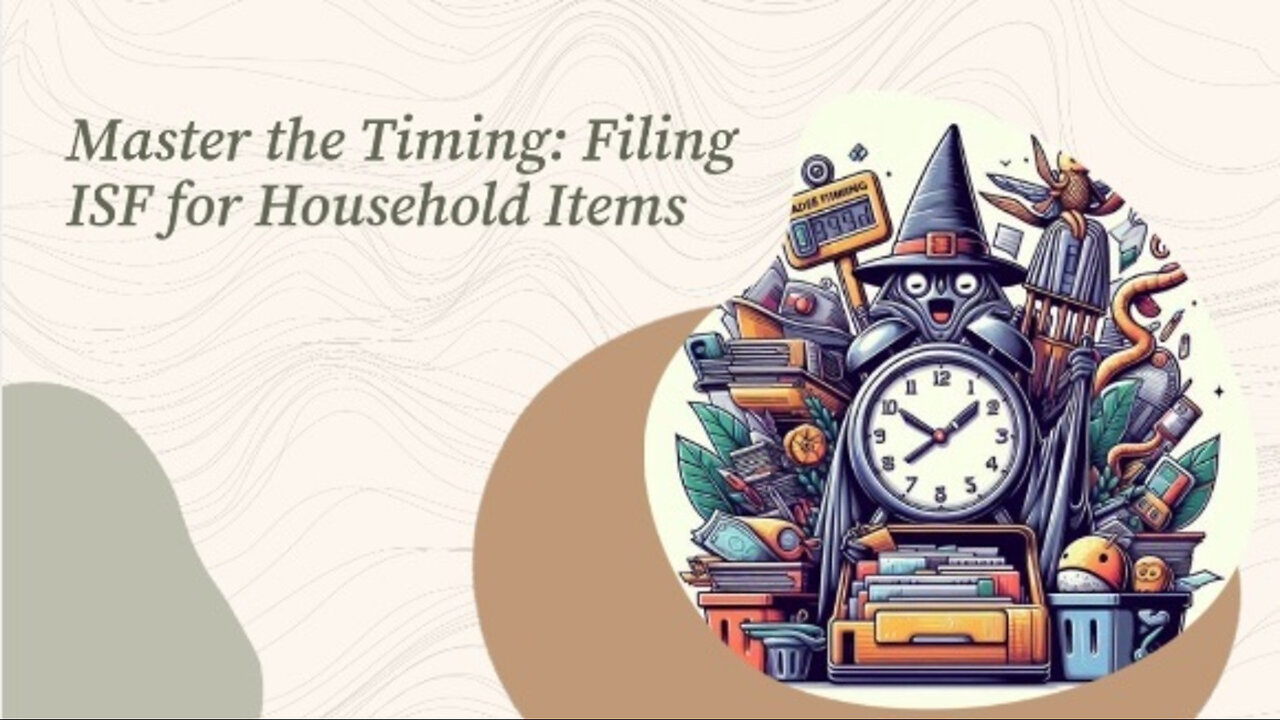Premium Only Content

Mastering the ISF: Essential Tips for Filing Household Sundries
ISF Template | 562-453-7357 | isf@isftemplate.com | www.isftemplate.com
In this video, we delve into the topic of Importer Security Filing (ISF) specifically for household sundries. The ISF, also known as the 10+2 rule, is a requirement by US Customs and Border Protection (CBP) that mandates importers and their agents to electronically submit certain information about their shipments before they arrive in the United States. Understanding the role of customs bond is crucial, as it acts as a financial guarantee between the importer, surety company, and CBP, ensuring compliance with customs regulations. When filing the ISF for household sundries, it must be done no later than 24 hours before the cargo is loaded onto the vessel. Accurate and complete information, such as buyer and seller details, manufacturer or supplier information, country of origin, HTS codes, and vessel information, is essential. Non-compliance with ISF requirements can result in penalties ranging from $5,000 to $10,000 per violation, making it imperative to follow regulations. Engaging the services of a licensed customs broker is recommended to navigate the intricacies of customs procedures and ensure compliance.
#usimportbond #isfcustomsbroker #uscustomsclearing #isfentry
Video Disclaimer Here: This video is designed for education and is unaffiliated with US government bodies.
00:32 - Understanding ISF and Customs Bond: The Importer Security Filing (ISF), also known as the 10+2 rule, is a requirement by U.S. Customs and Border Protection that mandates importers to electronically submit shipping information before cargo arrives in the U.S. A customs bond is necessary for imports over $2,500, ensuring compliance and payment of duties.
01:36 - Filing Deadlines and Requirements: ISF for household sundries must be filed at least 24 hours before the cargo is loaded onto the vessel. Key information required includes buyer and seller details, manufacturer information, country of manufacture, HTS codes, and vessel details to avoid penalties and delays.
02:28 - Compliance and Professional Assistance: Non-compliance with ISF regulations can result in significant fines ranging from $5,000 to $10,000 per violation. It is advisable to use a licensed customs broker to ensure accurate ISF filing and compliance, which can help streamline the customs clearance process.
-
 LIVE
LIVE
TimcastIRL
3 hours agoSouth Park Runs FULL FRONTAL Of Trump In Gross Parody After $1.5B Paramount Deal | Timcast IRL
8,693 watching -
 LIVE
LIVE
The Quartering
2 hours agoOn To The Big Bosses! Act 2 Of Expedition 33
506 watching -
 1:24:56
1:24:56
Glenn Greenwald
5 hours agoGlenn Takes Your Questions on Tulsi's Russiagate Revelations, Columbia's $200M Settlement, and More | SYSTEM UPDATE #492
94.1K44 -
 LIVE
LIVE
megimu32
2 hours agoOTS: With Great Power: Every Spider-Man Movie Unmasked w/ @thisistheraygaming
135 watching -
 LIVE
LIVE
WickedVirtue
1 hour agoSailing w/ The Crew
66 watching -
 LIVE
LIVE
Meisters of Madness
4 hours agoThe Finals with Redd
105 watching -
 1:27:11
1:27:11
Omar Elattar
9 hours agoThe Dating Expert: "I've Helped 4,000 Men Find LOVE!" - The #1 Alpha Trait Women Secretly Crave!
20K -
 LIVE
LIVE
VOPUSARADIO
9 hours agoPOLITI-SHOCK! "END THE FED, END THE LIES & END THE DEEP STATE ONCE AND FOR ALL"!
148 watching -
 1:43:38
1:43:38
LumpyPotatoX2
4 hours agoRumble Creator Round-Table - Let's Talk About It
22.2K2 -
 32:38
32:38
The Mel K Show
7 hours agoMel K & Dr. James Thorp, MD | Sacrifice: The Targeting of the Most Vulnerable | 7-24-25
27.6K10